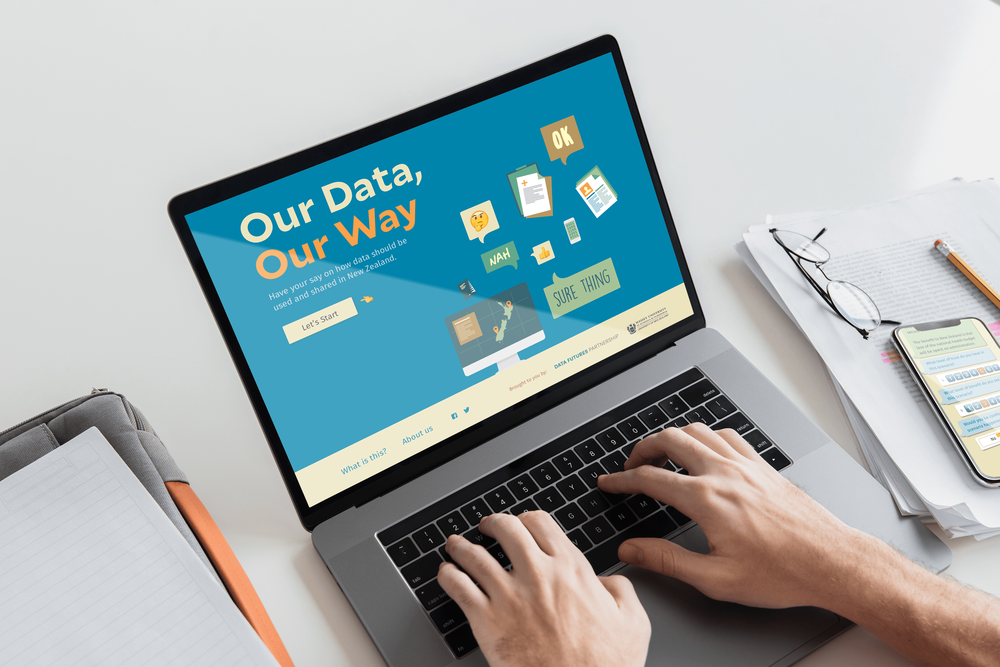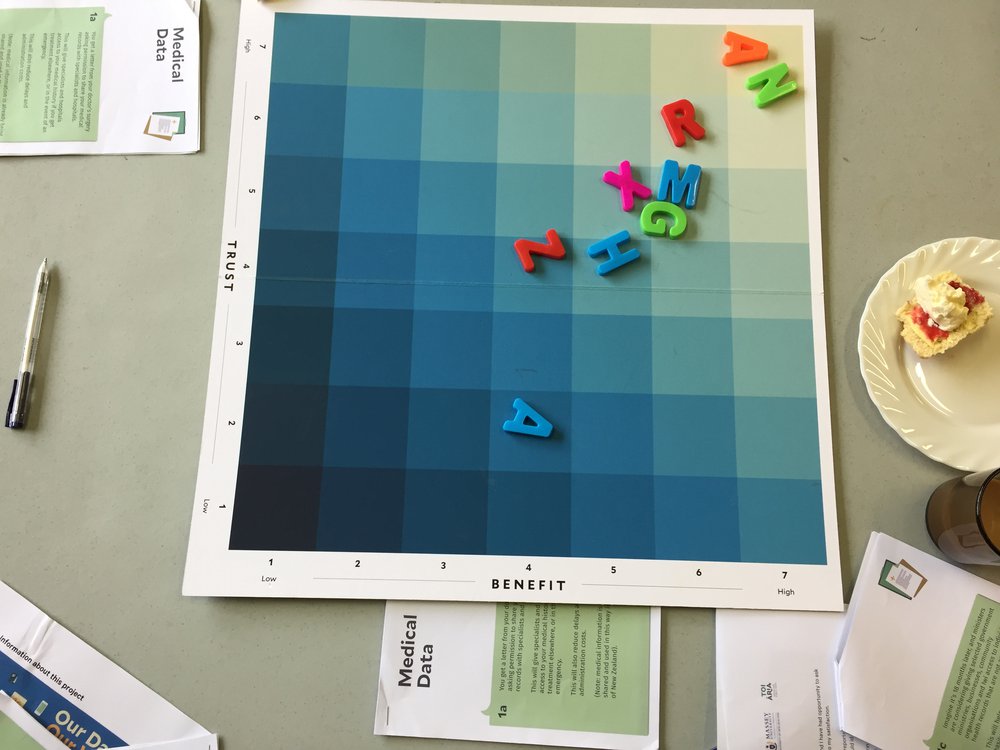Our Data, Our Way
Our Data, Our Way
In 2016 the Data Futures Partnership — an independent advisory body tasked by the government to draft guidelines for private and public organisations wishing to use people’s personal data — engaged Toi Āria to seek the views of New Zealanders about data use. The aim of the engagement was to find out ‘what matters’ when it comes to New Zealand people being comfortable with data use.
The Partnership asked for a social licence approach to the engagement, which it defined as follows:
When people trust that their data will be used as they have agreed, and accept that enough value will be created, they are likely to be more comfortable with its use. This acceptance is referred to as social licence.
This approach ensured much common ground and a range of diverging views, as people were encouraged to consider the value of data use and their levels of trust.
Toi Āria’s engagement programme for the Partnership — Our Data, Our Way — involved 27 face-to-face workshops across New Zealand, from Whangarei to Invercargill, involving 379 participants. An interactive online tool designed to inform, educate and capture data complemented the workshops. Subsequently, a further 4,000 New Zealanders provided feedback online.

The national engagement included discussion about how the term ‘people’ should be defined for the purposes of social licence. This was the first time New Zealanders had been given an opportunity to have their say on how their data is used and shared.
Our Data Our Way drew on a co-design methodology developed especially for this project, the Comfort Board. This unique engagement process, based around compelling and easy-to-understand data-use scenarios, was used for both face-to-face and online applications. See Comfort Board — A Catalyst for conversation.
The data-use scenarios were co-designed by Toi Āria and the Partnership to be relevant to a broad cross-section of New Zealanders. The scenarios were applied interactively to understand people’s comfort levels and to assess how they weighed up trust and benefit where their personal information was concerned. Three areas of direct interest to the government’s social investment programmes were modelled: health data, education data, and data gathered through the Internet of Things.
Responses were analysed to identify the common ground that New Zealand people agreed would make them more comfortable with data use and sharing.
The most frequently identified area of common ground described practical, more technical conditions of data use and sharing that people expected guidelines to cover. These included:
- Understanding and believing the specific purpose and nature of data usage and sharing
- Knowing there are rules and controls for organisations using and sharing data
- Personal visibility and control of sharing and use of personal data

Weaving through these more technical and practical comfort factors were themes related to questions of how New Zealand as a country and as a people could and should approach data. These included questions about:
- What New Zealanders want to achieve using data
- Checks and balances in place to protect New Zealanders against unintended uses of their data in future
- The impact for many New Zealand people when data is used as a ‘blunt instrument’
- How data could be gathered and used at the local level to achieve relevant outcomes for local communities and the value of communities playing a formative role in deciding how data can be used and shared in ways that they are comfortable with
- Businesses using New Zealanders’ data for profit unless they act in New Zealanders’ best interests, or for ‘public good’
- The feasibility of anonymised data
The Our Data Our Way findings informed the publication of draft guidelines on data use and sharing in 2017, titled Path to Social Licence: Guidelines for Trusted Data Use. A newer edition of the guidelines will be published in 2021.
